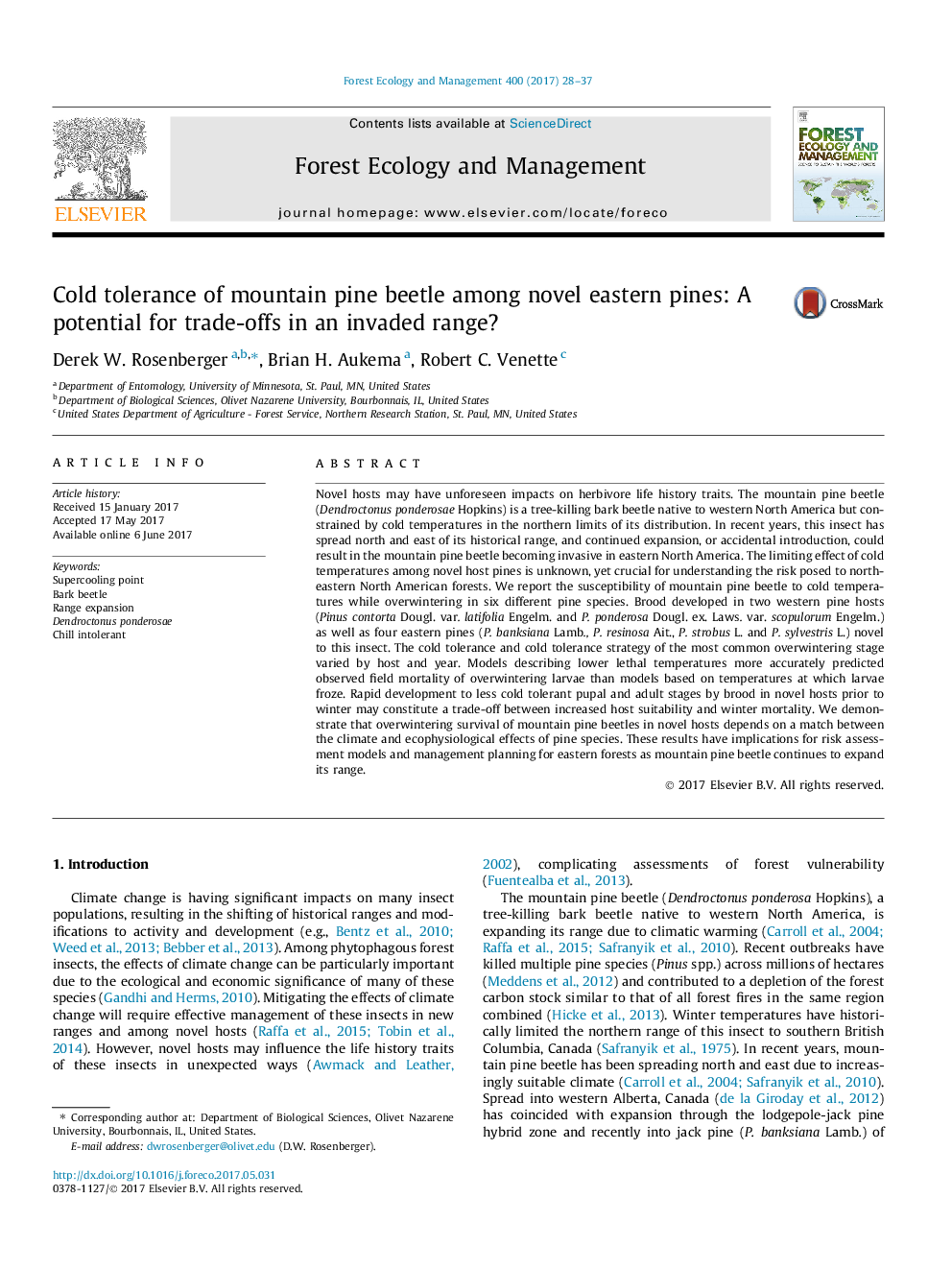| کد مقاله | کد نشریه | سال انتشار | مقاله انگلیسی | نسخه تمام متن |
|---|---|---|---|---|
| 6459201 | 1421358 | 2017 | 10 صفحه PDF | دانلود رایگان |
- Pine hosts affected MPB development rate and cold tolerance.
- Pupal and teneral adult stages are less cold tolerant than larval stages.
- Trade-offs may occur between rapid development and winter survival at advanced stages.
- Lower lethal temperature models better predicted mortality than supercooling point models.
Novel hosts may have unforeseen impacts on herbivore life history traits. The mountain pine beetle (Dendroctonus ponderosae Hopkins) is a tree-killing bark beetle native to western North America but constrained by cold temperatures in the northern limits of its distribution. In recent years, this insect has spread north and east of its historical range, and continued expansion, or accidental introduction, could result in the mountain pine beetle becoming invasive in eastern North America. The limiting effect of cold temperatures among novel host pines is unknown, yet crucial for understanding the risk posed to northeastern North American forests. We report the susceptibility of mountain pine beetle to cold temperatures while overwintering in six different pine species. Brood developed in two western pine hosts (Pinus contorta Dougl. var. latifolia Engelm. and P. ponderosa Dougl. ex. Laws. var. scopulorum Engelm.) as well as four eastern pines (P. banksiana Lamb., P. resinosa Ait., P. strobus L. and P. sylvestris L.) novel to this insect. The cold tolerance and cold tolerance strategy of the most common overwintering stage varied by host and year. Models describing lower lethal temperatures more accurately predicted observed field mortality of overwintering larvae than models based on temperatures at which larvae froze. Rapid development to less cold tolerant pupal and adult stages by brood in novel hosts prior to winter may constitute a trade-off between increased host suitability and winter mortality. We demonstrate that overwintering survival of mountain pine beetles in novel hosts depends on a match between the climate and ecophysiological effects of pine species. These results have implications for risk assessment models and management planning for eastern forests as mountain pine beetle continues to expand its range.
Journal: Forest Ecology and Management - Volume 400, 15 September 2017, Pages 28-37
